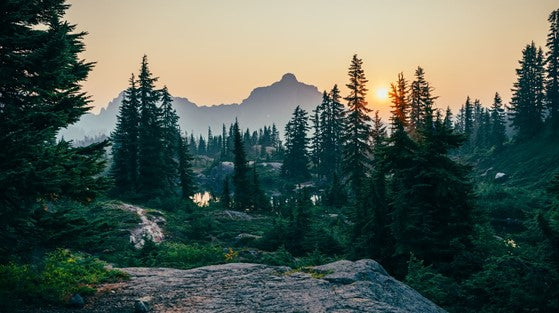So much of our everyday lives are connected to forests - the air we breath, the resources we use, and the water we consume and yet forests are disappearing at an alarming rate. According to The World Counts, a forest the size of Europe has vanished in just 40 years and half of the world's rainforests have been torn down in 100 years.
Deforestation has a slew of negative effects including habitat destruction, a decline and sometimes extinction of species, an increase of CO2 emissions, soil erosion, and more. The biggest, and possibly scariest effect of deforestation, is when we will reach a tipping point - a point of “no return”.
Professor Tim Lenton, Director of the Global Systems Institute, puts it like this: “A climate tipping point, or any tipping point in any complex system, is where a small change makes a big difference and changes the state or fate of a system.” One helpful way to visualize this is displayed in Robert McSweeney’s “Explainer: Nine ‘tipping points’ that could be triggered by climate change”, in the Carbon Brief. Picture a game of Jenga. You have a tower of blocks, with blocks from the bottom of the tower being removed and put on top - with each move, the tower becomes more unstable over time. Then, it may take just one block being removed for the whole tower, or system, to come tumbling down.
Now back to how deforestation, specifically the widespread deforestation occurring in the Amazon rainforest, is a climate tipping point. Losing large swathes of forest results in unfathomable amounts of CO2 being put back up into the atmosphere and as more deforestation occurs, that particular ecosystem becomes less resilient. As Chris Boulton - a researcher at the University of Exeter - puts it, the Amazon “is like a giant water recycling network, as moisture from evaporation and transpiration from trees is blown by winds. So the loss of some of the forest, and some of the moisture, leads to more drying elsewhere.” It’s a vicious cycle where less trees add to further drying and more tree loss. But it’s not too late to break that cycle.
Today, on International Day of Forests, it’s not just a time to appreciate the trees around us, but to understand the important role that trees play in our world-wide ecosystem and what we can collectively do to make sure we never have to feel the brutal effects of losing our forests. Shop sustainable products that do not add to deforestation and push for laws that protect forests from being cleared. There are sustainable alternatives and together, we can make a positive impact.





